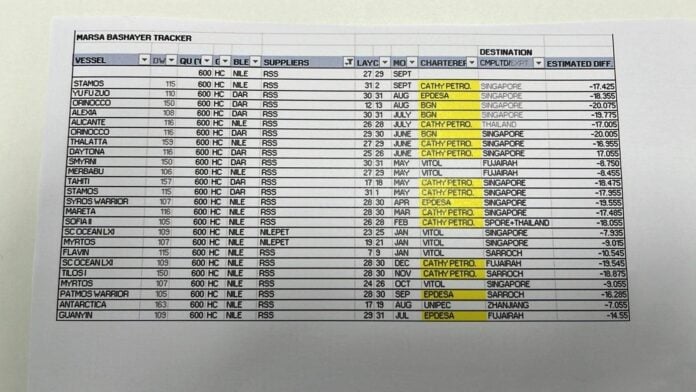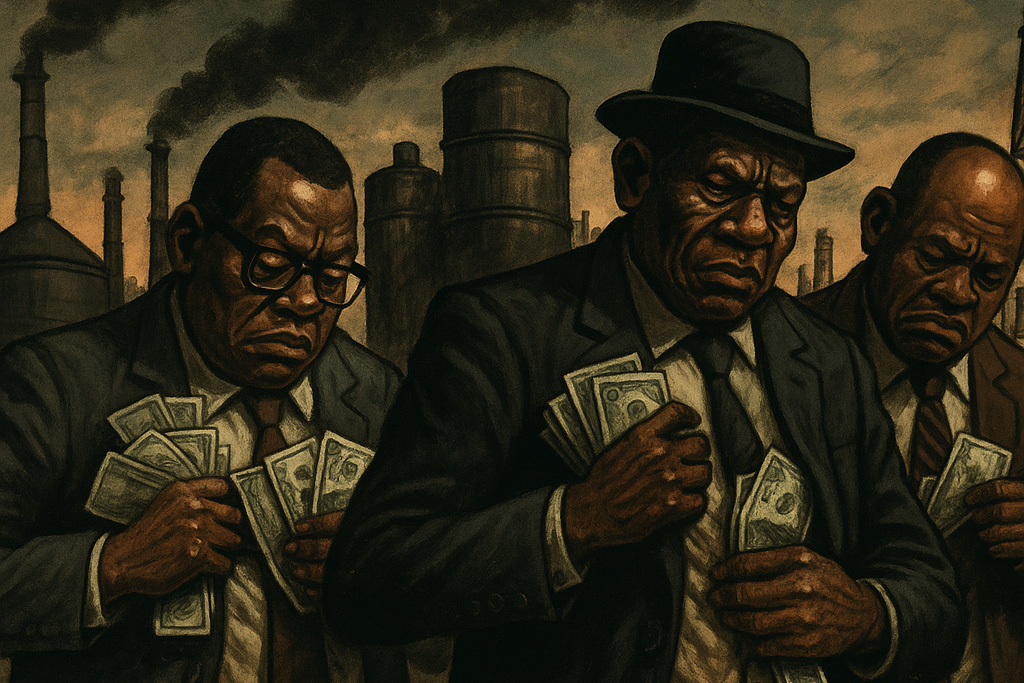A staggering $700 million has reportedly gone missing from South Sudan’s oil revenues, shaking the very core of the country’s long-standing corruption system. As Afrik.com reports, the scandal has already claimed high-level victims, including Vice President Benjamin Bol Mel, the Governor of the Central Bank, and the head of the Revenue Authority. Attention is now turning to Petroleum Minister Deng Lual Wol, placed under arrested this evening amid the widening revelations of financial looting.
A Collapsing Structure of Power
According to Afrik.com, the patronage system that has dominated South Sudan’s oil sector for years is beginning to crumble. President Salva Kiir announced the dismissal of Vice President Bol Mel on Wednesday in a decree read on national television. Within hours, the Central Bank Governor and the Revenue Authority chief were also removed from office.
These dismissals are believed to mark only the beginning of a larger purge. At the Ministry of Petroleum, Deng Lual Wol—recently reappointed after replacing Chol Deng Thon Abel, who had been preparing a report on large-scale corruption—has now been arrested tonight in Juba. Having been linked to earlier corruption allegations, his continued presence is viewed by many as unsustainable. Several sources in Juba told Afrik.com that “his fall is now inevitable.”
The $700 Million Discrepancy
Afrik.com cites confidential figures from the Ministry of Petroleum indicating that 29 cargoes of 600,000 barrels each were exported between July 2024 and October 2025, amounting to 17.4 million barrels in total. With an average sale price of $73 per barrel, the exports should have generated more than $1 billion in state revenue.
Yet, according to a finance ministry source quoted by Afrik.com, only about $300 million ever reached government accounts. The remaining $700 million disappeared through a web of shell companies, unusual price discounts, and undisclosed contracts—a system insiders say Deng Lual Wol understands “down to the smallest detail.”
The Ministry at the Core of the Scheme
The Ministry of Petroleum, Afrik.com explains, has long functioned as the control center of South Sudan’s extractive corruption model. Its near-absolute power over oil revenues, lack of oversight, and close political alliances have allowed this vast diversion of public wealth.
Afrik.com reports that the exported oil was sold to preferred traders—Cathay Petro, BGN, and Epossa—companies operating within the EuroAmerica network owned by businessman Idriss Taha. A manipulated pricing formula granted these firms discounts of around $14 per barrel, costing the state hundreds of millions in lost income.

An Investigation Silenced
Afrik.com reveals that a probe into the scheme had begun to take shape before it was abruptly halted. Appointed in late October, Chol Deng Thon Abel launched an internal investigation into the missing funds and was reportedly preparing to submit a damning report to the government. But on November 6, just one week after taking office, he was suddenly dismissed and replaced by none other than Deng Lual Wol—the very official at the center of the system under scrutiny.
Wol’s rapid reinstatement, initially seen as a show of strength by entrenched networks, may now hasten his downfall. “He has become the face of everything that went wrong,” a Western diplomat in Juba told Afrik.com. “With others already removed, his position is no longer tenable.”
Untraceable Cargoes and Offshore Channels
Afrik.com notes that the missing shipments were routed to Singapore, Thailand, Fujairah, and China—international hubs where crude oil is blended and resold, making it impossible to trace its origin. These practices mirror previous scandals involving Nilepet, the state oil company, where financial flows were funneled through offshore accounts in the UAE and Singapore.
A Nation Drained of Its Wealth
While the networks of profiteers enriched themselves, seven million South Sudanese continue to face food insecurity. As Afrik.com recalls, a 2024 UN Panel of Experts report stated that “systemic corruption in the oil sector deprives South Sudan of the resources needed to address its humanitarian crises.”
The $700 million that vanished could have funded two years of healthcare spending or education for a million children. Instead, the money fed a predatory system now collapsing under the weight of its excesses.
Pressure Mounts on Kiir’s Administration
For now, no formal audit has been announced. But Afrik.com notes that the ongoing wave of dismissals suggests President Salva Kiir, under domestic and possibly international pressure, has been forced to sacrifice key figures in his administration.
In Juba, political insiders believe that more dismissals are coming. Late tonight, multiple security sources confirmed that Deng Lual Wol, long seen as the living symbol of South Sudan’s oil-fueled corruption, has been arrested in the capital. His detention marks a dramatic escalation in the ongoing purge and could signal the beginning of a long-awaited reckoning with the organized looting that has drained the nation for more than a decade.


